
Southern Gospel Music
"Dinner on the Ground"
A Taste of Southern Gospel
Southern gospel music is a genre of Christian music. Its name comes from its origins in the southeastern United States. Its lyrics are written to express either personal or a communal faith regarding biblical teachings and Christian life, as well as (in terms of the varying music styles) to give a Christian alternative to mainstream secular music. Sometimes known as “quartet music” for its traditional “four men and a piano” set up, southern gospel has evolved over the years into a popular form of music across the United States and overseas, especially among baby boomers and those living in the Southern United States. Like other forms of music, the creation, performance, significance, and even the definition of southern gospel varies according to the cultural and social context. It is composed and performed for many purposes, ranging from aesthetic pleasure, religious or ceremonial purposes, or as an entertainment product for the marketplace. (Wikipedia)
The Roots
The date of southern gospel’s establishment as a distinct genre is generally considered to be 1910: the year the first professional quartet was formed for the purpose of selling songbooks for the James D. Vaughan Music Publishing Company in Lawrenceburg, Tennessee. Nonetheless, the style of the music itself had existed for at least 35 years prior.
Some of the genre’s roots can be found in the publishing work and “normal schools” or singing schools of Aldine S. Kieffer and Ephraim Ruebush. Southern gospel was promoted by traveling singing school teachers, quartets, and shape note music publishing companies such as the A. J. Showalter Company and the Stamps-Baxter Music and Printing Company. (Wikipedia)
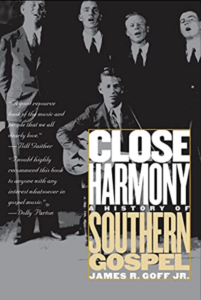
Joseph Funk (1778–1862)
Joseph Funk (1778–1862) was a pioneer American music teacher, publisher, and an early American composer. He was the son of Henry and Barbara (Showalter) Funk, and a grandson of Bishop Heinrich Funck, who was a German Palatine settler of Bernese Swiss descent. Bishop Funck came to America in 1719 to become the first Mennonite bishop in America. As a boy, Joseph moved with his parents to Rockingham County, Virginia, and spent the rest of his life there.
In 1804, he married Elizabeth Rhodes, and they had five children. After her death, he married Rachel Britton, and they raised nine children.
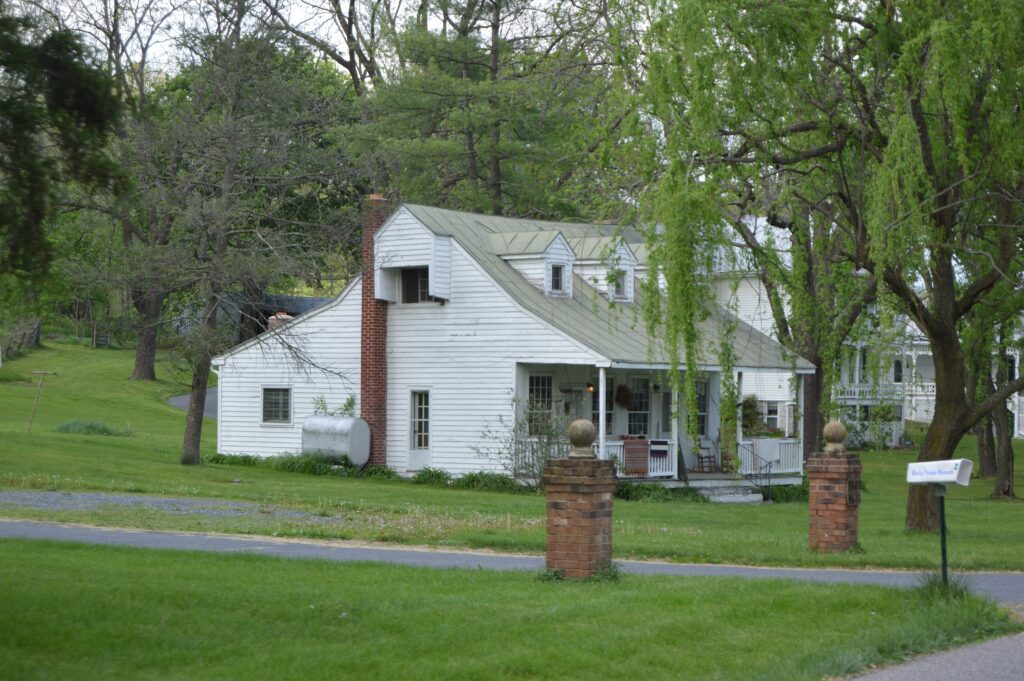
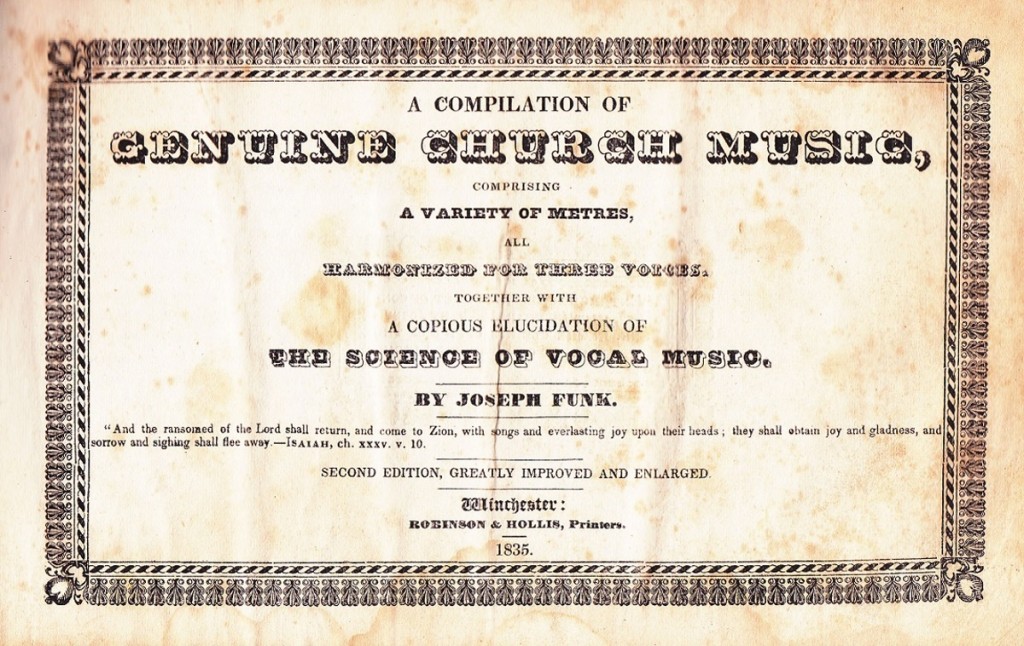
Ananias Davisson’s successful “Kentucky Harmony” of 1816 likely inspired Joseph Funk to publish his landmark “Die Allgemein Nutzliche Choral-Music” (The Universally Useful Choral-Music) in Harrisonburg in 1816.
Funk also adapted and popularized the seven-shape note system of Jessie Aiken that stood in contrast to the older four-note system favored by adherents to the hymnal The Sacred Harp. By the late nineteenth century, seven-shape books were the standard in most of the South.
A member of the Mennonite Church, Funk established the first Mennonite printing house in the United States in Mountain Valley, Virginia (later renamed Singers Glen). in 1847, Funk and his sons were active in organizing and teaching many singing schools in Virginia, and Funk compiled and published seven books and periodicals.
The 1847 fourth edition of Funk’s “A Compilation of Genuine Church Music” was the first publication by Joseph Funk and Sons. The name was changed to “Harmonia Sacra” in 1851. The book is still in use by Mennonites today. The Southern Musical Advocate and Singer’s Friend was a 16-page monthly periodical published by Funk from 1859 to 1861. It was a forerunner of The “Musical Million and Fireside Friend”, a periodical published by Funk’s grandson, Aldine S. Kieffer. Joseph Funk’s sons continued the printing business after his death. The Ruebush-Kieffer Company purchased the press in 1878.
The Joseph Funk House was listed on the National Register of Historic Places in 1975.
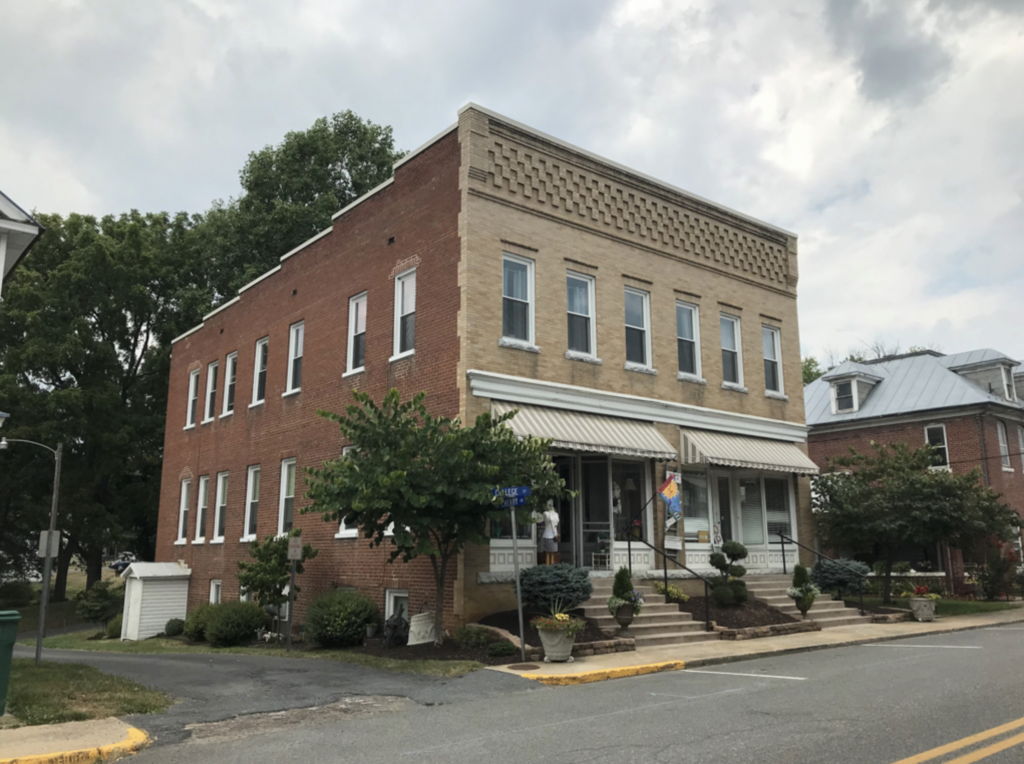
The Ruebush-Kieffer Publishing Company and Singing School
The close of the American Civil War brought two young men back to a devastated Shenandoah Valley and an uncertain future. Joseph Funk’s grandson Aldine Silliman Kieffer had joined the Tenth Virginia Volunteer Infantry and campaigned with the Army of Northern Virginia until his capture and imprisonment in 1864. Waiting to greet him upon his release from Fort Delaware was his brother-in-law and friend, Ephraim Ruebush, who had served in the Union Army.
The war divided many Valley families, but Kieffer and Ruebush put the past aside and renewed their friendship.
Before the war, both had worked for Kieffer’s grandfather, the pioneering Mennonite music publisher and singing master, Joseph Funk. Now Funk had passed away and the business lay in ruins. These two men would revive Funk’s legacy and build a company that became the foremost publisher of sacred shape-note songbooks and hymnals in the nineteenth century South: the Ruebush-Kieffer Company of Singer’s Glen and later Dayton, Virginia. (The Library of Virginia)
In August of 1874, Ruebush and Kieffer opened the Virginia Normal Music School, considered to be the first such institution in the South.
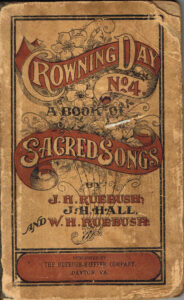
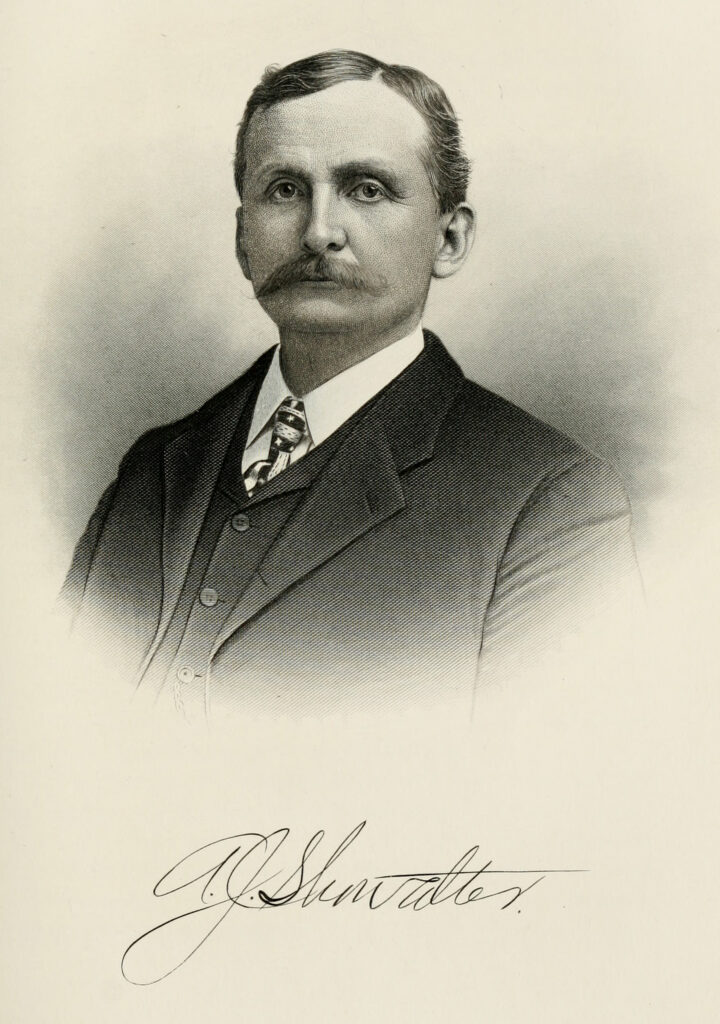
Anthony Johnson Showalter
A. J. Showalter (1858-1924) was an American gospel music composer, teacher and publisher. He was born in Cherry Grove, Virginia and was the great-grandson of Joseph Funk’s sister. Showalter was trained in the Ruebush-Kieffer School of Music and was teaching in shape note singing schools by age fourteen. He published his first book of songs in 1880, and in 1884, he moved to Dalton, Georgia where he formed the Showalter Music Company and started his own singing school. By the early 20th century, there will be branches of the Showalter Music Company in Dallas, Texarkana, and Chattanooga.
By 1904, Showalter had sold close to two million copies of a total of sixty different songbook titles.
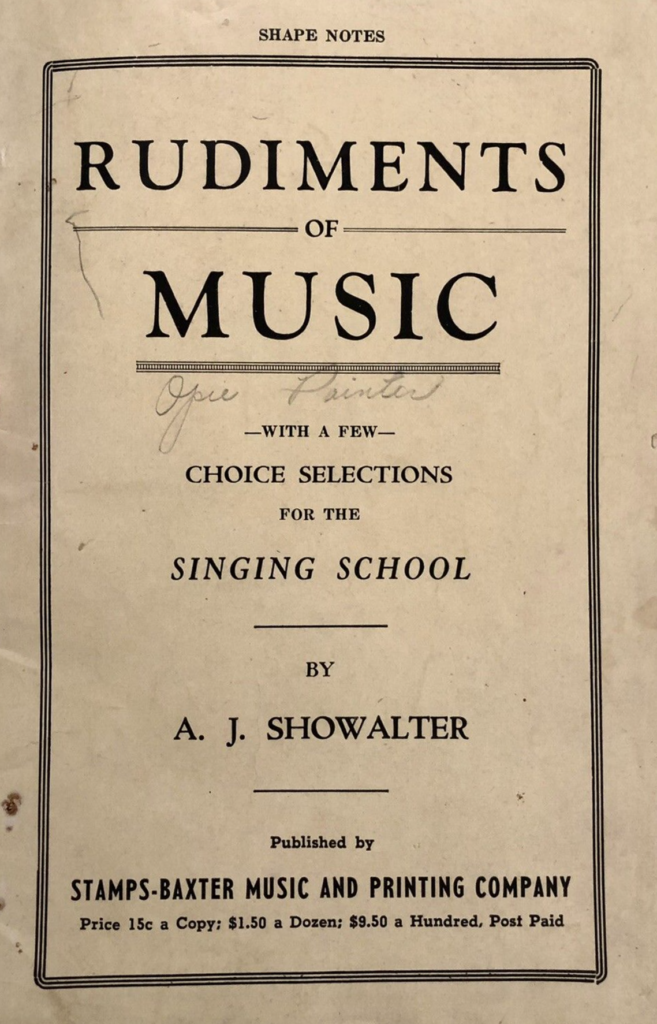
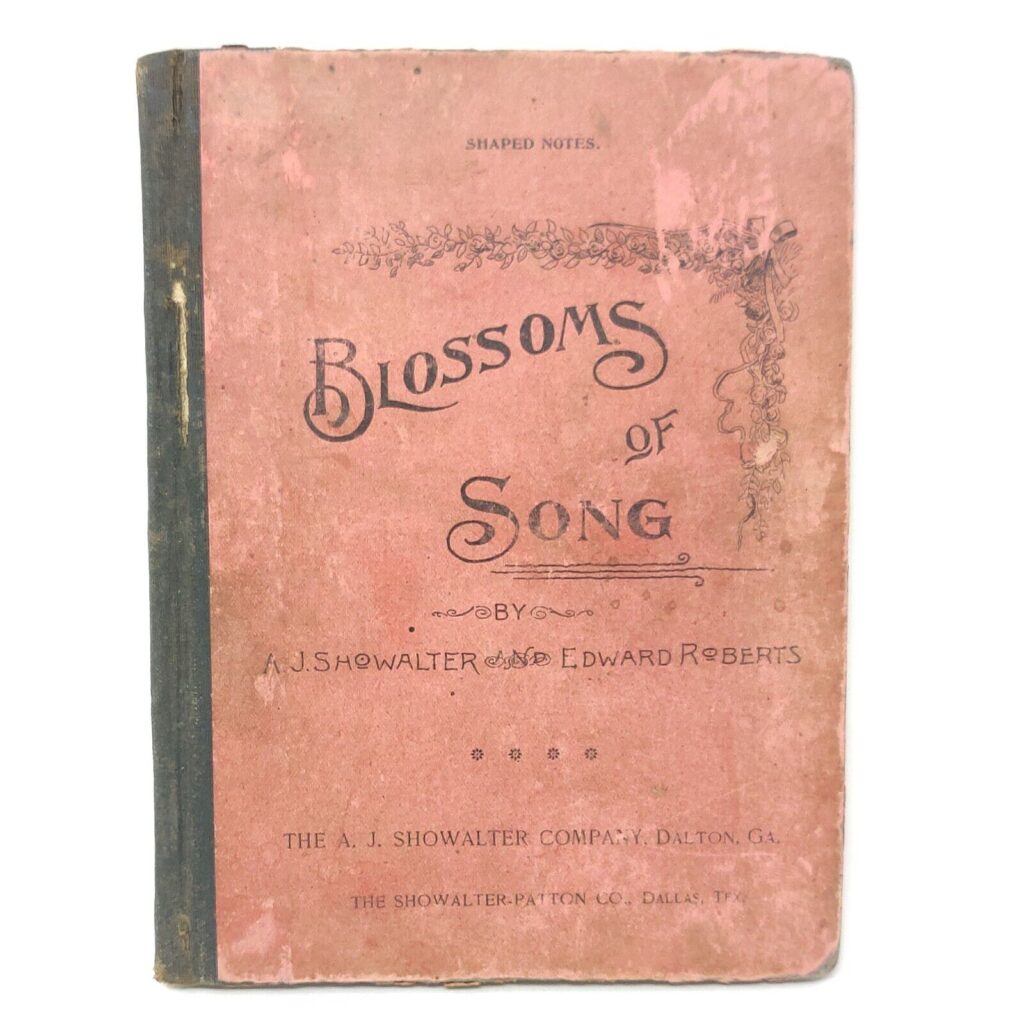
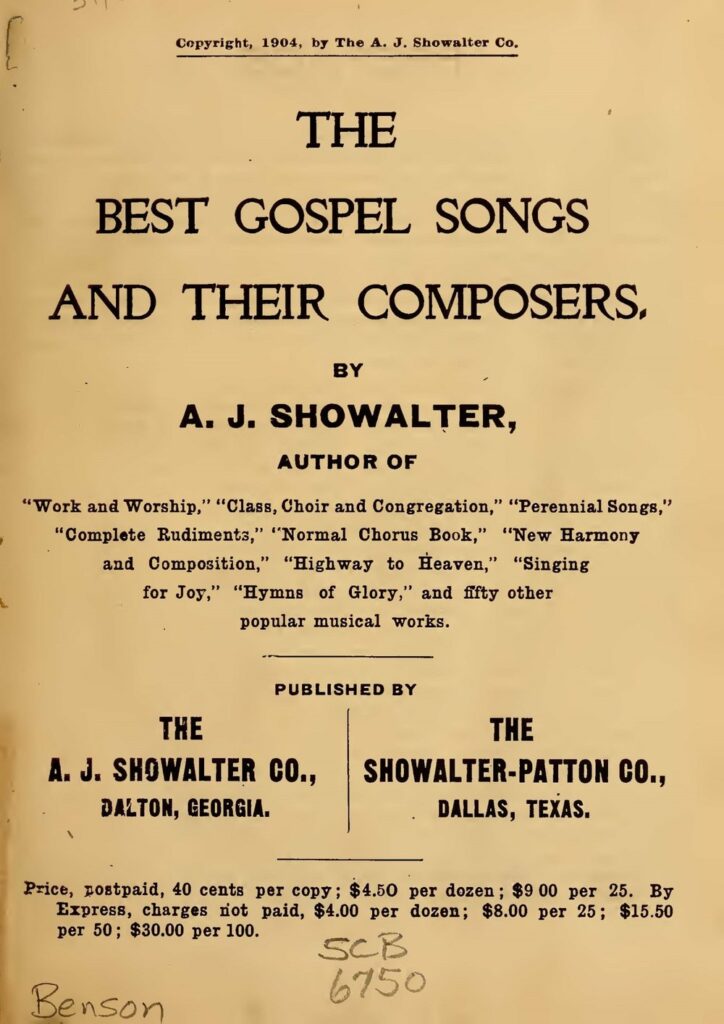
James D. Vaughan
James D. Vaughan was the most important figure in the development of Southern Gospel Music. He was born in 1865 in Giles County, Tennessee. In 1902, he moved to Lawrenceburg, Tennessee. There, he established the Vaughan Music Company. The company moved to their permanent location in 1909.
Vaughan passed away in 1941, after having successfully sold around six million songbooks. (James D. Vaughan Museum. Lawrenceburg, TN)
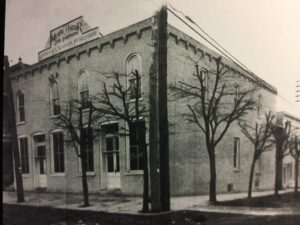
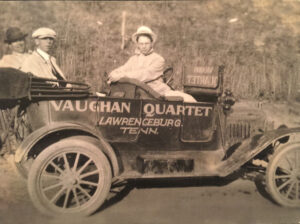
The Vaughan Quartet
James D. Vaughan formed the first Vaughan Quartet in 1910. During their first singing outing, the quartet sold 5,000 songbooks. The quartet became very popular, and by the mid-1920s, sixteen Vaughan-sponsored quartets were traveling throughout the country.
Today, industry officials estimate that there are more that 8,0000 amateur and professional Southern Gospel groups singing in the United States (James D. Vaughan Museum. Lawrenceburg, TN)
The Vaughan School of Music
James D. Vaughan opened the Vaughan School of Music in Lawrenceburg, Tennessee in 1911. The school would train young students to teach singing and improve their musical talents.
Vaughan hired Benjamin C. Unseld, a veteran of the Ruebush-Kieffer School in Virginia, to coordinate the school’s curriculum and serve as its principal.
The school boasted a fine faculty that included the great gospel songwriters Adger Pace and G.T. Speer (“Daddy Speer” of the Speer Family Singers) and hymnist Luther Drummond. (James D. Vaughan Museum. Lawrenceburg, TN)
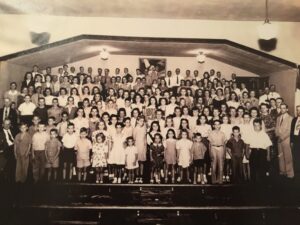
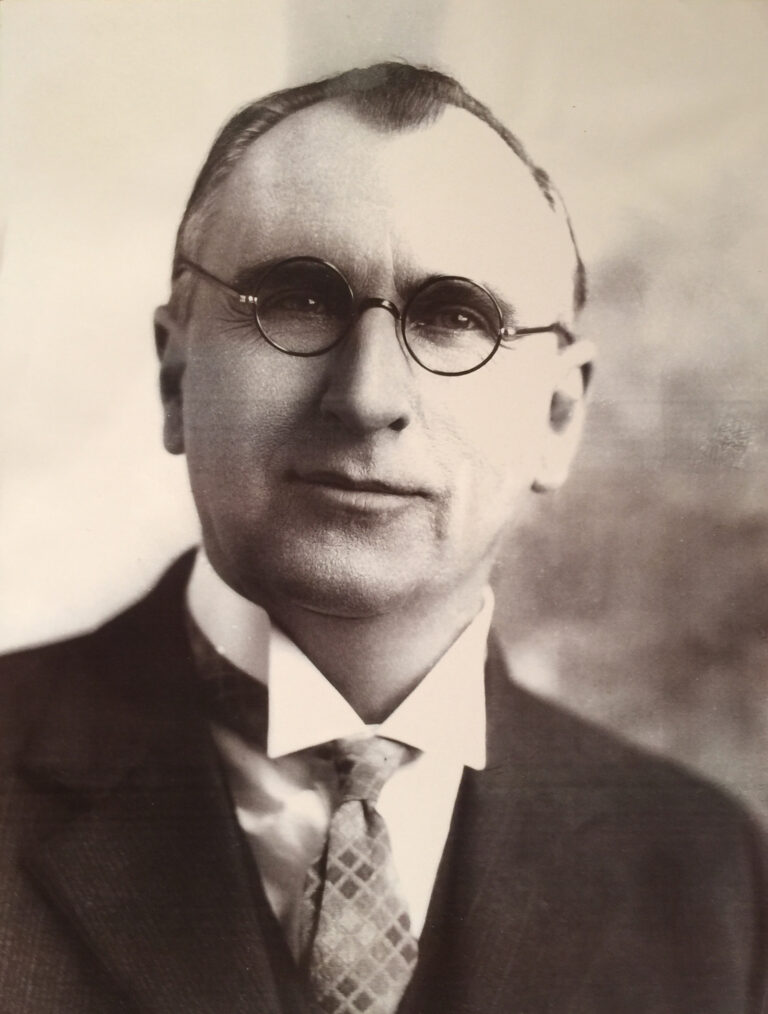
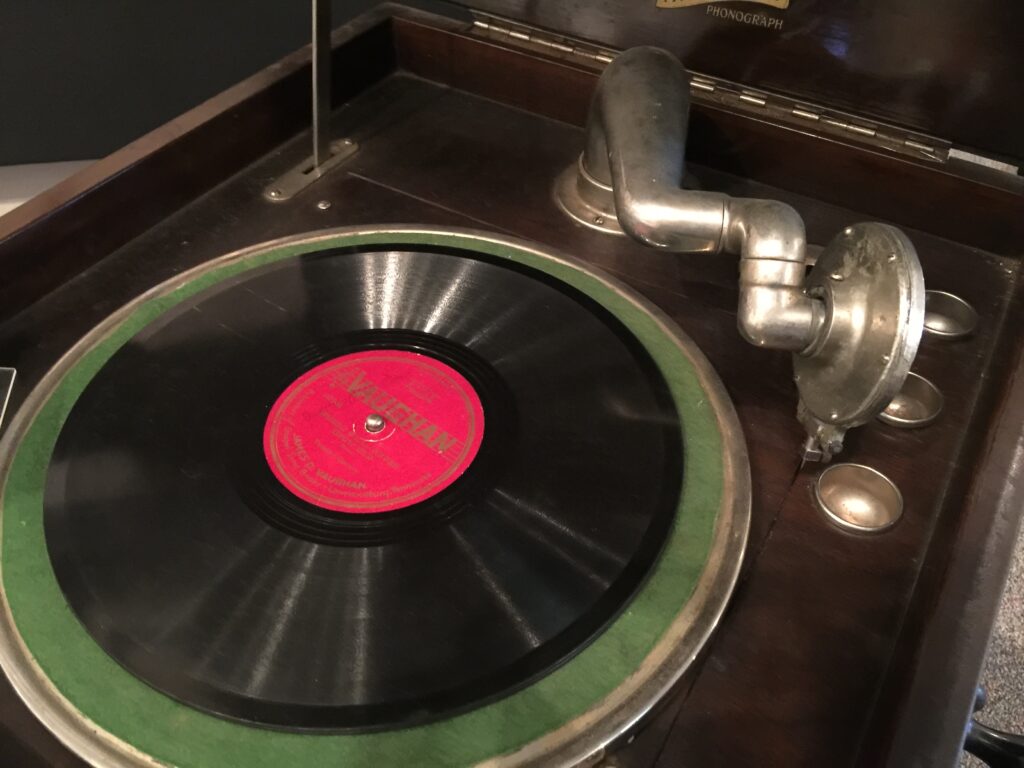
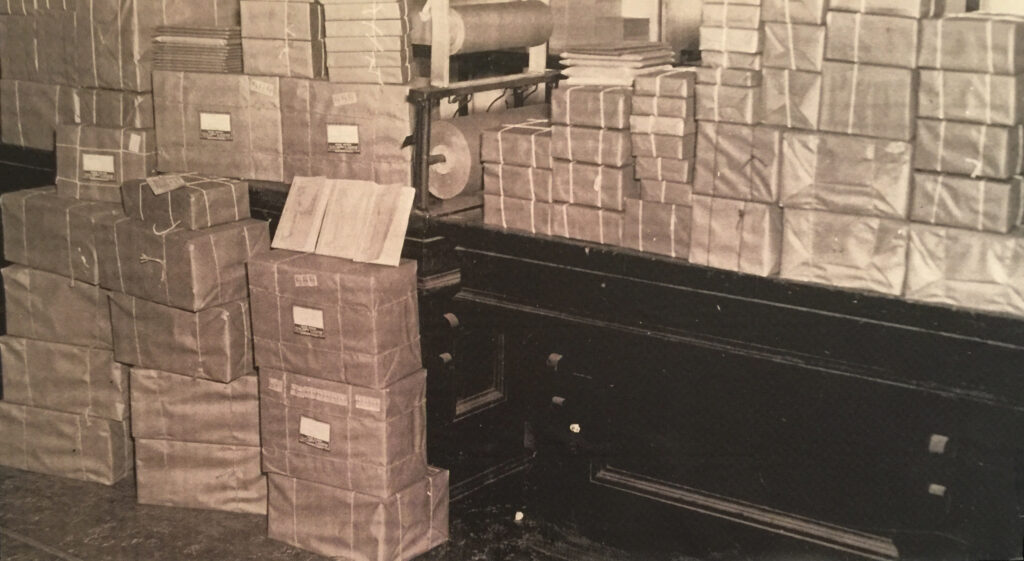
The Stamps-Baxter Music Company
Virgil Oliver Stamps was born and raised in Upshur County, Texas. He was a key individual in early gospel music publishing. As a youth, he worked with his father in a sawmill and used his earnings to purchase every gospel songbook that he could find. In 1907, he attended the singing school of Richard M. Morgan. Sometime after that, his father bought a small store and Virgil worked there while teaching singing schools. In 1914, he became a field representative for the James D. Vaughan Music Company. Around 1915 he composed his first song, entitled “The Man Behind the Plow”. In 1917, Virgil moved to Lawrenceburg, where he sang bass in one of Vaughan’s quartets. The following year, Vaughan sent him to Texas to operate Vaughan’s interests there.
In 1924 Virgil, now known by his initials, founded the V. O. Stamps Music Company in Jacksonville, Texas. Also in that year, the first session of the V. O. Stamps School of Music was held. In 1924 or 1925 he published “Harbor Bells”, his first song book.
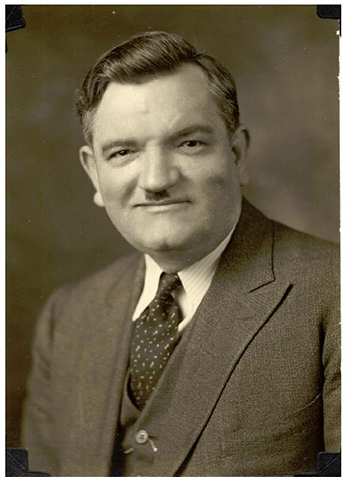
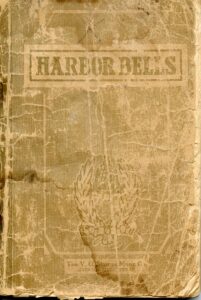
In 1927, V.O. Stamps along with Jesse Randall Baxter Jr., a graduate of Showalter’s music school and who worked for Showalter’s music publishing company, formed the Stamps-Baxter Music Company.
In 1929, Virgil relocated to Dallas, Texas. Branch offices for the Stamps-Baxter Company were opened, including one in Pangburn, Arkansas that was managed by gospel songwriter Luther G. Presley. Business grew and by 1936, a permanent location at 209 South Tyler Street in the Oak Cliff subdivision of Dallas was secured.
Over the next five years, Stamps-Baxter would become the most prominent name in gospel music.
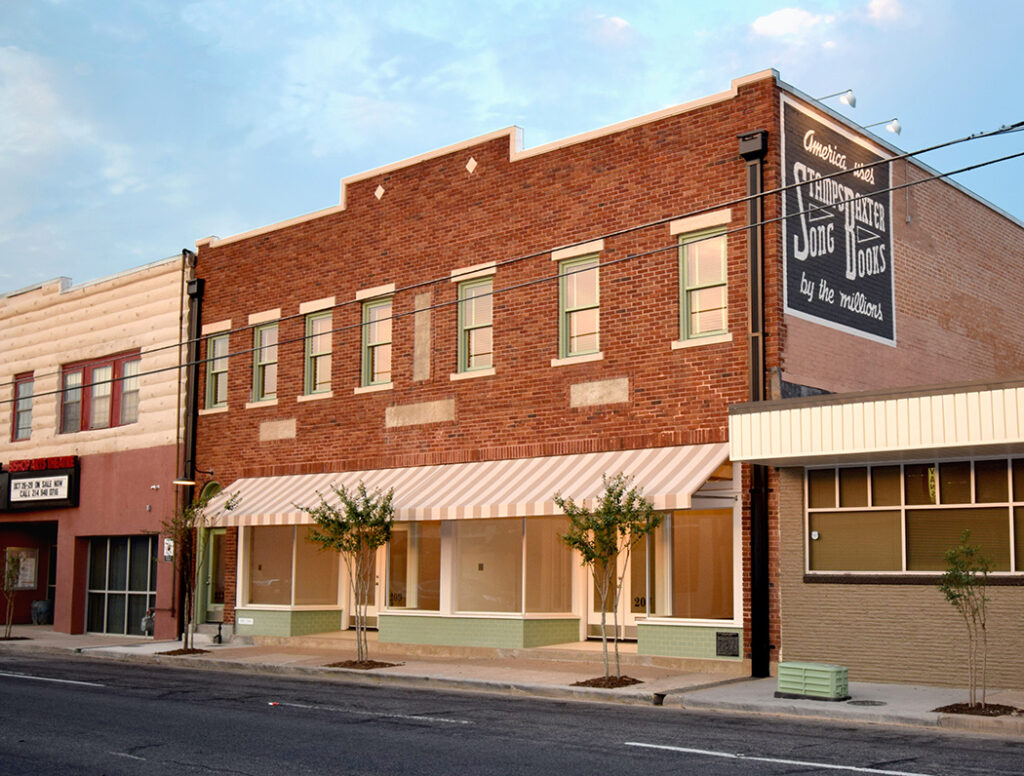
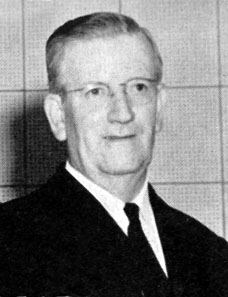
The Stamps Quartet
By Shaun Stalzer (Texas State Historical Association)
V. O. Stamps founded the V.O. Stamps School of Music in 1924, and his brother Frank (born around 1890 in Gilmer, Texas) established the first Stamps Quartet around the same time. The quartet underwent numerous personnel changes from its beginning in 1924 to the present, and some other gospel groups used the Stamps name whether or not they actually had any direct affiliation with the original Stamps brothers.
The Stamps Quartet became the first Southern gospel quartet to sign with a major label when it recorded “Give the World a Smile” for the Victor label in the late 1920s. By that time V. O. Stamps had partnered with J. R. Baxter to form the Stamps-Baxter Music and Printing Company that was instrumental in the development of the various Stamps quartets over the years and also became one of the most successful printers of shape note songbooks in the United States. The Stamps Quartet provided the ideal promotional vehicle through which to advertise the company’s songbooks through their daily broadcasts on KRLD radio in Dallas. Virgil Stamps died in 1940, and with his death Frank took over the partnership with J. R. Baxter and allowed several groups to use the Stamps name in exchange for their selling of the Stamps-Baxter songbooks.
Over the years the Stamps Quartet also underwent both high and low points in terms of their popularity. In 1950, Frank Stamps decided to focus his attention solely on publishing songbooks. The remaining members of the group, however, continued to record as the Stamps Quartet for a short time thereafter but soon changed the name to the Plainsmen Quartet. Around 1962 the group reformed with members Terry Blackwood, Smiling Joe Roeper, Jerry Redd, Big Jim Waits, and Roger McDuff. Upon his retirement in 1962, Frank Stamps sold his publishing interests. Eventually J. D. Sumner purchased some interest in the company and became manager of the Stamps Quartet. During the ensuing years more personnel changes occurred. Beginning in 1971 and lasting for over half a decade, the Stamps Quartet reached its greatest popularity as the main backup group for Elvis Presley until his death in 1977. Following Presley’s death, numerous personnel changes resulted in an overall decline in the group’s popularity, despite performing at various Elvis tribute events and gospel concerts. The quartet broke up in 1979, but by the late 1980s J. D. Sumner decided to revive the group. After Sumner’s death, quartet member Ed Enoch officially trademarked the Stamps Quartet name in 2003. The group continued to perform, although only one of the current members, Enoch, owner and manager, remained from the quartet’s years with Elvis.
A note from Don Robertson: “Rex Nelon (who sang with The LeFevres gospel group, The Rex Nelon Singers and The Nelons) finally acquired Stamps Quartet Music.”
Read About Southern Gospel Sacred Music
An excerpt from Musical Kaleidoscope Book 1
"The Church Hymnal"
With the growth of the Church of God denomination and the success of the Tennessee Music Printing Company during the 1940s, a hymnal for the denomination was published in 1951 by a committee that included Otis McCoy, Church of God songwriter and singer Vep Ellis, and minister Zeno C. Tharp. The hymnal is commonly know as the “red-back” due to the color of its cover.
For more information about the red-back Church Hymnal, see RedBackHymnal.com
Examples
Southern Gospel Playlists
The Albert E. Brumley Southern Gospel Singing Festival
The Isaacs
This page is dedicated to Will Stamps, Stamps Family historian, who has supported our work through the years.
